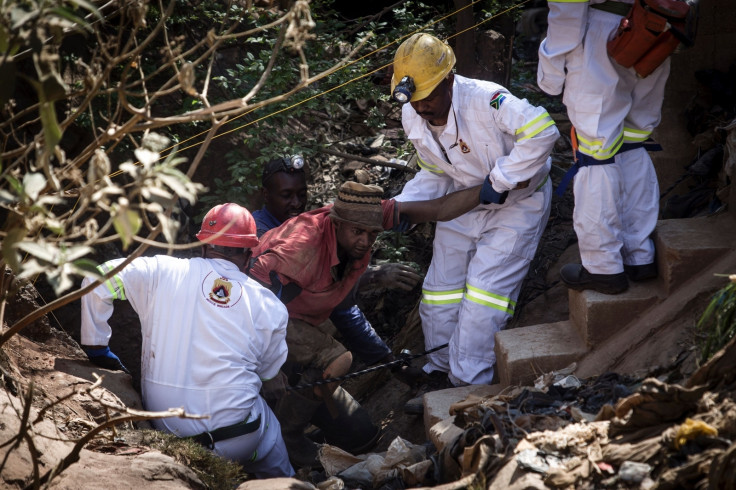900 gold miners trapped underground after South Africa power failure
KEY POINTS
- Miners at the Beatrix mine work up to 2.2km underground.
- Around 60 miners were rescued overnight with approximately 900 still trapped.
- Those trapped have been receiving food and water.
Around 900 miners are trapped in a South African gold mine following a power outage.
The outage has been blamed on a 31 January thunderstorm that brought down electrical lines, leaving the workers trapped in the Beatrix gold mine near Welkom in Central Free State.
Around 60 miners were rescued overnight, leaving approximately 900 still trapped.
James Wellsted, a spokesman for Sibanye-Stilwater - the company that owns the site and the largest individual producer of gold in the country - told local media that power was being restored, but there was not yet enough generated to rescue the remaining miners.
Wellsted said that those still trapped were safe and were receiving food and water.
"We've currently got generators there and we are trying to link them up to the hoist in order to bring the people to surface, but we are experiencing some difficulties with the circuit that may be linked to the surge relating to the storm and the power issue," he said.
The Beatrix mine has four mining shafts at depths of 700m to 2.2km below the surface. South Africa is the seventh largest gold producer in the world, mining around 140 tonnes of the precious metal annually.
Joseph Mathunjwa, president of the Association of Mineworkers and Construction Union, said the incident raised "serious concerns regarding the lack of emergency plans at the mine".
"Lives might already be threatened due to dehydration and blood sugar issues because of a lack of nutrition," he said. "It is also quite common for adults to be on chronic medication, and it is highly probable that there are some workers who are trapped without access to medicine."
Partially because its gold mines are so deep, dozens of miners die every year in South Africa. In 2017 the number of fatalities rose for the first time in a decade, to at least 82 deaths from 73 in 2016.






















